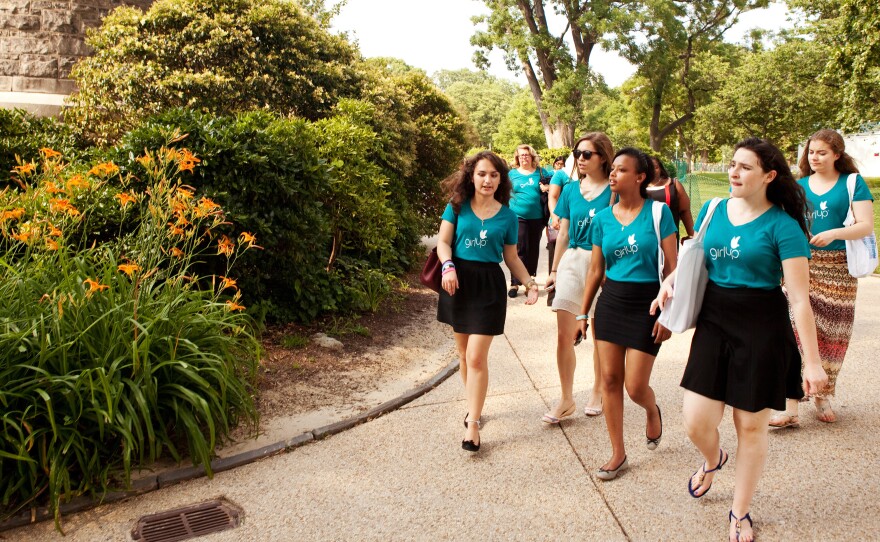What's life like for a 15-year-old girl in Zambia? In Brazil? In Nepal? In the United States?
Starting this fall, NPR will be looking at the lives of 15-year-old girls: the challenges they face, the rules they break, the advice they'd give to a little sister.
Today, we'll be talking with a group of teenage girls here in Washington, D.C., and we'd like to invite you to join us – and join in. Our conversation will be on Periscope, an online community that lets you "explore the world through someone else's eyes" with live streaming video. Look on the Goats and Soda tweeter feed — @nprGlobalHealth — and you'll get the live URL at 12:30 p.m. You'll be able to share comments and questions.
The teenagers we'll be interviewing are leaders with Girl Up, a U.N. Foundation group that is holding its 2015 Leadership Summit this week.
Girl Up fights for the rights of the 600 million adolescent girls of the developing world. Many of these rights we take for granted: going to school, receiving proper health care, living in safety and simply being counted at birth (because, for example, if you don't have official proof of a child's age, then how can governments fight against child labor?)
We expect a lively discussion. Last year we spoke with a group of Girl Up leaders at the 2014 Leadership Summit. Here are some of their talking points.
Aklesiya Dejene, who emigrated from Ethiopia to Chicago in 2012: "Girls just don't get as much resources and opportunities as men do. I want to represent them."
Rocio Ortega, a first-generation Mexican-American who lives in Los Angeles: "Sports is where girls can find their voice and self-confidence." Ortega visited girls in an Ethiopian refugee camp, and they had similar concerns. They told her: "We want our own space to play sports. We want our own basketball court without having to worry about boys playing next to us."
Gloria Samen, the American-born daughter of Cameroonian immigrants: "I grew up watching generations of silent women, women who were expected to stay home." Even now, her father thinks she should change the channel on the TV as part of her daughterly duties — even though the remote is by his side. She wants girls to fight unfair expectations. "We're able to change the lives of girls we would never meet," she says. "This women's network is an unbreakable bond. I think it's so cool."
Copyright 2015 NPR. To see more, visit http://www.npr.org/.






